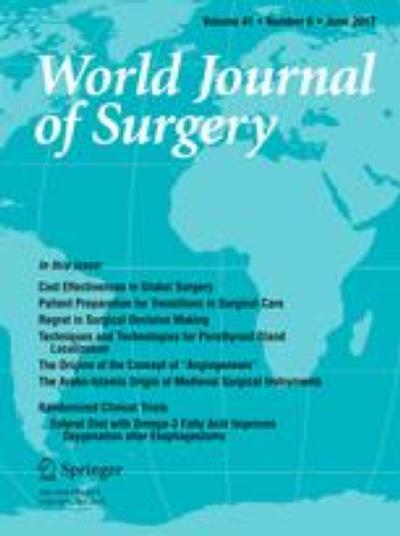News
June 21st, 2017
For more than a decade, nurturing partnerships to improve and advance levels of healthcare in low resource settings has been a central concern for Diamedica.
It’s why the company was happy to join forces with the G4 Alliance and its 80 members to co-author a manuscript published in the World Journal of Surgery.
The manuscript announces a global unifying target of safe surgical and anaesthesia access for 80% of the world by 2030.
To measure progress towards this goal, the G4 Alliance developed 15 target consensus indicators with its members that will help track health systems as they strengthen.
It's worth weighing up this ambitious goal alongside the United Nations’ Sustainable Development Goals, or SDGs. While SDG3 – Good Health and Wellbeing – is of obvious relevance to anyone working in the surgical or anaesthesia arenas, neither of these words appear anywhere in outlines for this SDG – yet.
Challenges
While many – including the WFSA (World Federation of Societies of Anaesthesiologists) – lobbied for the SDGs to include formal outlines for surgery and anaesthesia provisions, this did not materialise at first.
The WFSA website says “When the Millennium Development Goals (MDGs) were set in the year 2000 the priority areas of anaesthesia and surgery were not mentioned specifically in MDG 6 which seeks to “Combat HIV/AIDS, Malaria and Other Diseases”.
"Since 2000 there has been notable success in tackling child mortality, maternal health and specific diseases such as HIV/AIDS, Malaria and Tuberculosis; however, the neglect of surgical care has led to the epidemic that we have today with 5 billion people unable to access safe, affordable surgical and anaesthesia care when needed (Lancet Commission on Global Surgery, 2015)."
Increasingly, global opinion is seeking to address this issue and stakeholders from around the globe have now agreed that 80% of the world should have access to safe surgical and anaesthesia care by 2030.
Strides forward – in context
G4 Alliance Director of Operations, Mira Mehes, said: “Regarding the SDGs, we started engaging at the UN in 2014 as part of the Post-2015 consultative process. The G4 Alliance made statements on behalf of our informal (at the time) network on a number of occasions and worked with the NGO Major Group and Women's Major group to push for specific language on surgical and anaesthesia care to be included as part of SDG 3.8.
“In one iteration of the Zero Draft language on surgical care was included, but in the final version the language had been removed. As the draft SDG agenda resulted from years of meetings and negotiations between Member States and Civil Society, it was felt by some that by adding surgical care – a relatively new concept in the world of global development at the time – we would dilute the UHC (Universal Health Coverage) message and that other conditions should also then be included – disability, for example.
“It was also felt that with the pending World Health Assembly (WHA) resolution 68.15 (not yet approved at the time), ‘emergency and essential surgical care and anaesthesia’ would be considered an integral component of UHC.
Mira added: “Keep in mind, this was before we had new data from the DCP3 (Disease Control Priorities, third edition) and the Lancet Commission on Global Surgery.
“At the time our best estimate was that surgical disease was responsible for 11% of the burden of global disease instead of one third. Despite numerous independent peer-reviewed studies, there was a paucity of global consensus on surgical data, especially regarding the prevalence, burden and costing/cost-effectiveness.
“In a sense, we formalised our network as a result of our experience at the UN when we were advocating for prioritisation of surgery and anaesthesia availability."
At the 70th World Health Assembly at the end of May 2017, two significant, related things happened:
1. Significantly, an amendment calling on the Director General to provide a progress report on WHA Resolution 68.15 every three years until 2030 was approved. This request was led by Zambia, Morocco, and Thailand.
2. Kenya also delivered a statement on behalf of the African region, supported by Zambia and Namibia, calling for a Global Action Plan to support implementation of Resolution 68.15 (see photo, right).
Future moves
The next step will be the introduction of an agenda item specifically addressing these requests at the next WHA, but the attention drawn by Resolution 68.15 is an exciting development for anyone interested in the expansion and strengthening of global surgery and safe anaesthesia.
We may all be setting our sights high, but enough people are joining together to suggest that with commitment and support, this could be an attainable goal, and not a pie-in-the-sky dream.
Click here to read the manuscript Diamedica helped compile for the World Journal of Surgery.


